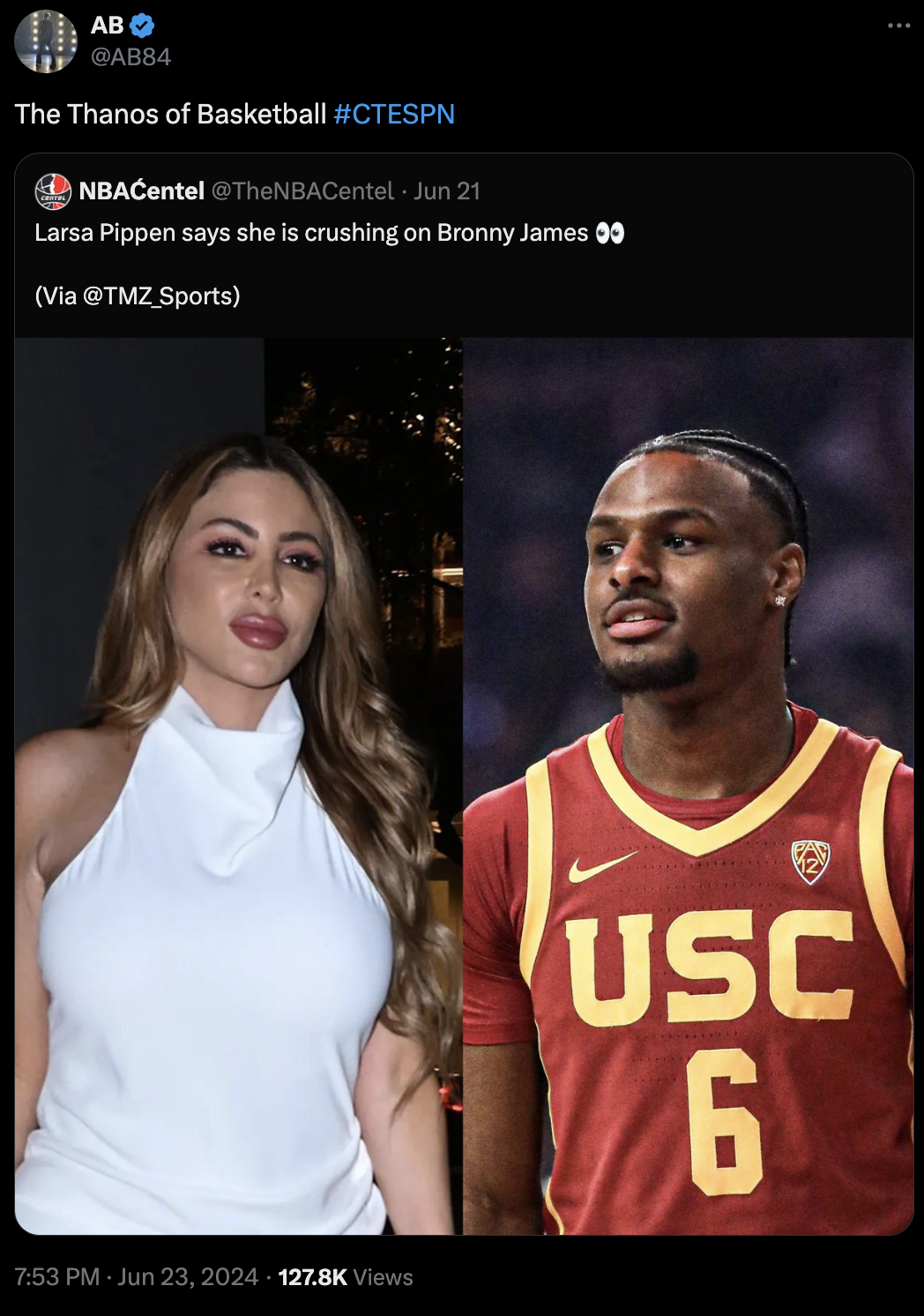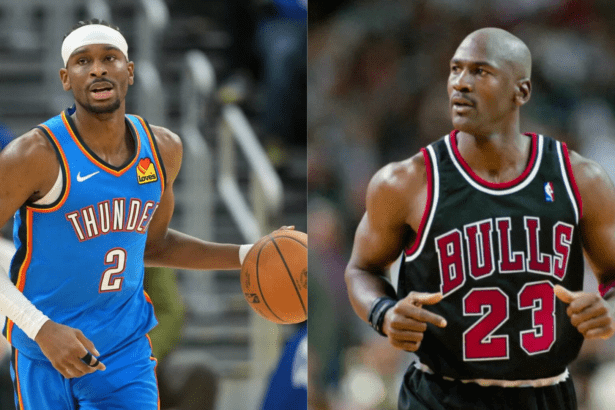Antonio Brown recently fell victim to a fake social media post claiming that Larsa Pippen had a crush on Bronny James. The misleading information originated from a parody account, NBACentel (@TheNBACentel), which mimics the well-known NBACentral (@TheDunkCentral). This parody account has a history of duping people with its fabricated news.
“The Thanos of Basketball #CTESPN”

Upon seeing the fake post, Brown shared it on his social media. This reaction highlights how easily misinformation can spread, especially when it involves high-profile individuals.
Larsa Pippen’s past relationship with Marcus Jordan, the son of NBA legend Michael Jordan, already stirred significant media attention. Their relationship, which lasted a year and ended officially in March 2024, was controversial due to its complex dynamics, involving Michael Jordan’s teammate, Scottie Pippen, Larsa’s ex-husband.
Bronny James, meanwhile, is focused on preparing for the upcoming NBA Draft. As he inches closer to a potential professional basketball career, he finds himself inadvertently pulled into these fabricated stories.
Brown is not the first to be deceived by NBACentel. Draymond Green previously fell for a fake quote attributed to Kevin Garnett by the same account. This incident led Garnett to call out Elon Musk for the radical changes to X (formerly Twitter), suggesting that these alterations have made the platform more susceptible to misinformation and parody accounts.
Additionally, Stephen A. Smith was duped by a fabricated Instagram screenshot supposedly posted by Shai Gilgeous-Alexander, mocking the Clippers. This incident led Smith to discuss the fake post on national television, further spreading the misinformation.
Kevin Durant, though not personally deceived by NBACentel, has witnessed fans falling for fake news and offering him unsolicited advice about his dating life. Known for his sharp responses on social media, Durant has effectively shut down such misguided comments, emphasizing the importance of verifying information before reacting.
The incident with Antonio Brown underscores the pervasive issue of fake news and the need for individuals, especially public figures, to exercise caution and verify the authenticity of information they encounter on social media.
Athletes, Media Personalities, And Fans Have To Be Extremely Careful In Today’s Social Media
In today’s digital age, falling prey to fake posts is not uncommon. Athletes, who possess powerful voices and significant recognition, must take the time to verify the authenticity of information before sharing it. Their influence can reach millions, and a single misstep can lead to widespread misinformation.
Media personalities also bear a heavy responsibility. Millions of fans eagerly await the insights and opinions of their favorite sports commentators, writers, and analysts. When these figures share unverified or false information, it can quickly spread and mislead a vast audience. It’s essential for media professionals to uphold high standards of fact-checking and accuracy.
Fans, too, need to be cautious. In an era where social media is a primary source of news and information, falling for misinformation can have harmful consequences. It can lead to misunderstandings, spread false narratives, and, in extreme cases, cause real-world harm. Therefore, fans must develop a critical eye and verify the information they encounter online.
Fake posts often start as humorous or satirical content. While humor is a common intent, the line between harmless fun and offensive content can be thin. Misinformation can mislead people, foster misunderstandings, and damage reputations. Even if a fake post doesn’t “cross a line” in terms of offensive content, it can still spread misinformation about critical topics like health, politics, or safety.
Athletes, media personalities, and fans must collectively strive to ensure that the information they share and consume is accurate. This involves cross-referencing sources, relying on reputable news outlets, and being skeptical of sensational or too-good-to-be-true stories.
While not all fake posts cause harm—some might be benign or intended for humor—the potential for negative effects necessitates caution. Sharing unverified information can perpetuate falsehoods, leading to confusion and mistrust. In this era of information overload, it’s crucial for everyone to exercise vigilance and responsibility in their online interactions to maintain the integrity of the information ecosystem.
Thank you for being a valued reader of Fadeaway World. If you liked this article, please consider following us on Google News. We really appreciate your support.


























